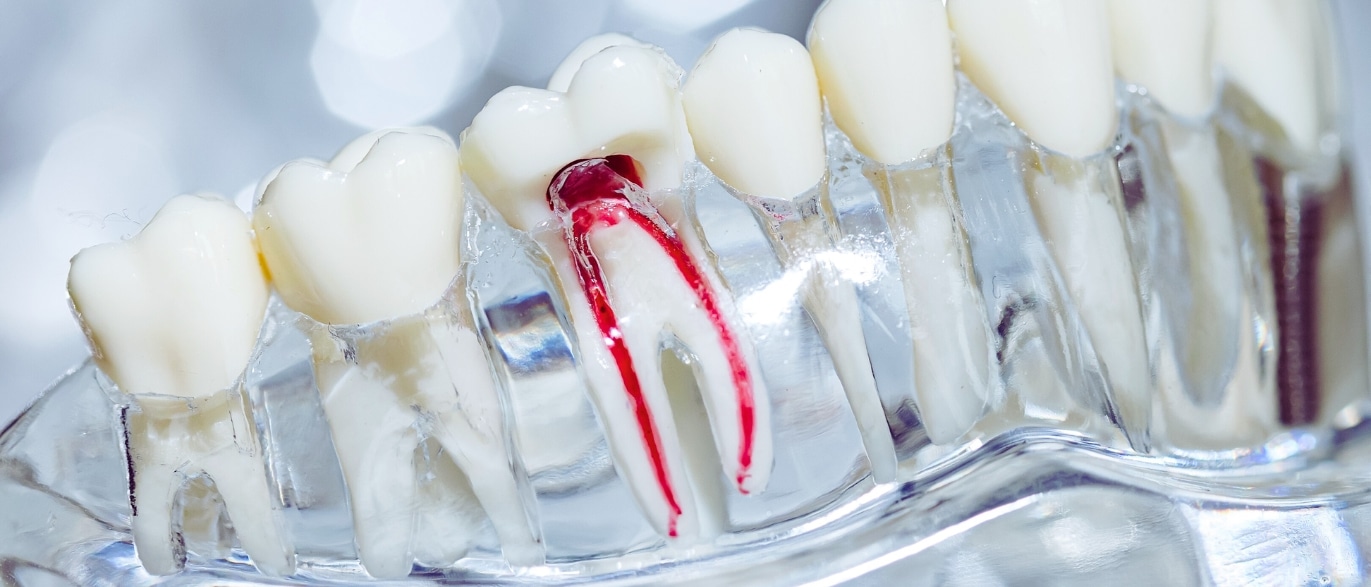Pearl Dental Blog

Signs That Indicate You Have a Root Canal Infection
Root canal infections are a common dental problem that can lead to serious complications if not addressed promptly. Recognizing the signs of a root canal infection is crucial for seeking timely dental care and preventing further damage to your teeth and overall health. In this blog post, we’ll explore the key indicators of a root canal infection, why they occur, and what you can do if you suspect you have one.
Understanding Root Canal Infections
Before diving into the signs, let’s briefly understand what a root canal infection is. Inside each tooth, beneath the enamel and dentin, lies the pulp. The pulp contains nerves, blood vessels, and connective tissue, which help grow the root of your tooth during its development. A root canal infection occurs when bacteria invade the pulp, leading to inflammation and infection. This can happen due to various reasons, including deep decay, chips, cracks in the tooth, or repeated dental procedures.
Signs That Indicate You Have a Root Canal Infection
Persistent Pain
Pain is the most common and noticeable sign of a root canal infection. The pain can vary from mild to severe and may worsen when you bite down on the tooth or apply pressure. It might not be constant and can come and go, but it’s a clear indicator that something is wrong inside the tooth.
Sensitivity to Hot and Cold
If your tooth starts feeling especially sensitive to hot or cold temperatures, it could be a sign of a root canal infection. This sensitivity might manifest as a sharp, acute pain when consuming hot drinks or cold foods and could last even after the temperature source is removed.
Swollen Gums
Swelling around the infected tooth is another sign of a root canal infection. The gums might feel tender to the touch and appear red or swollen. In some cases, the swelling can spread to the face or neck.
Discoloration of the Tooth
An infected tooth might change color, becoming darker or grayish compared to the surrounding teeth. This discoloration is due to the dead pulp tissue inside the tooth.
Prolonged Bad Taste or Bad Breath
An ongoing bad taste in your mouth or chronic bad breath, despite regular brushing and flossing, could indicate a root canal infection. The presence of bacteria and dead tissue can contribute to these unpleasant symptoms.
Pimple on the Gums
A pimple-like bump on your gums, often called a “sinus tract” or “fistula,” can indicate a root canal infection. This bump may ooze pus, which can cause a bad taste or odor in your mouth.
Why Root Canal Infections Occur
Root canal infections occur due to bacterial invasion of the tooth’s pulp. Common causes include:
- Deep Decay: When tooth decay reaches the inner layers of the tooth, it can infect the pulp.
- Damage: Chips or cracks in the tooth can provide an entry point for bacteria.
- Old Fillings: Over time, fillings might break down, allowing bacteria to enter the pulp.
- Dental Procedures: Repeated dental procedures on a tooth can stress the pulp, making it more susceptible to infection.
What to Do If You Suspect a Root Canal Infection
- If you notice any of the signs mentioned above, it’s important to consult with a dentist as soon as possible. Ignoring the symptoms can lead to more serious complications, such as the spread of the infection to other parts of the body or the loss of the tooth.
- The standard treatment for a root canal infection is a root canal procedure, where the infected pulp is removed, the inside of the tooth is cleaned and disinfected, and then filled and sealed. With modern dental techniques, root canal treatments are much more comfortable than they used to be, often requiring only one or two visits to the dentist.
Recognizing the signs of a root canal infection early can save you from pain and prevent further complications. Persistent pain, sensitivity to temperatures, swollen gums, discoloration of the tooth, prolonged bad taste or bad breath, and a pimple on the gums are all indicators that you might need a root canal. If you experience any of these symptoms, don’t hesitate to seek dental care. With timely intervention, a root canal infection can be effectively treated, preserving your tooth and your health.





